The role of an educational psychologist (EdPsych or EP) is to support children and young people – as well as those who teach and care for them – and help them overcome barriers to learning. The title of educational psychologist is legally protected, held by professional psychologists who have specialist expertise and knowledge relating to child and adolescent development and education systems.
Educational psychologists work in partnership with educational settings, local authorities, and other relevant professionals – such as, social workers, paediatricians and speech and language therapists – with the aim of improving childrens’ educational experiences. As well as children from preschool age, many EPs also work with adolescents and adults up to 25. This often includes assessing and diagnosing certain special education needs (SEN).
Why might a child be referred to an educational psychologist?
In most cases, a referral to an educational psychologist is the result of parental or teacher concerns regarding a child’s progress, development, learning or behaviour. For example, a child may experience learning difficulties, struggle with social and emotional problems or developmental disorders, have additional physical needs or another SEN.
The aim of a referral is to get the help and support the child needs to thrive and reach their full potential. An educational psychologist can suggest strategies, adaptations or other means of additional support to reduce barriers to learning and development.
According to the Educational Psychology Service, initial concerns about a child’s needs are generally raised with the school’s Special Education Needs Coordinator (SENCo). While they can often help to address and support many concerns, they may contact an EP to begin more in-depth discussions; depending on the specifics of a local authority, this may not happen immediately – and many choose to pursue a private practice route as a quicker alternative.
What is an educational psychologist assessment?
Educational psychologists undertake specialist training so they can assess and diagnose certain conditions, as well as support a variety of other social, emotional, developmental and behavioural issues. EPs conduct assessments called educational psychological assessments, that generally take place within the child’s school.
As part of the assessment, an EP will have discussions with teachers and parents or carers, and observe the child during play and classroom activities. Examining samples of classwork, interacting with the child, and conducting tests – to check intellectual and skill development – also form important parts of the assessment process.
They use a range of assessment tools, based on an individual child’s needs. Any psychometric tests conducted by an EP should be evidence-based and standardised. The tests often include:
- British Ability Scales (BAS) cognitive assessment
- Wechsler assessment scales (WORD, WOLD, WOND, WASI and WISC)
- Neuro-psychological Assessment (NEPSY) development difficulties
- BRIEF Inventory
- GARS and CARS scales
- Connor’s rating scales
- Vineland Scales and ABAS Scales.
EPs are trained to diagnose conditions including:
- dyslexia
- dyspraxia
- dyscalculia.
Following assessment, the EP will produce an in-depth report detailing their findings. The report will include an overview of the child’s strengths and weaknesses, suggestions and strategies for how to best support the child’s learning, development, and physical and emotional wellbeing moving forward, additional relevant materials, and advice on school types that can support specific needs, if required.
Some educational psychologists are also able to diagnose ADHD (Attention Deficit Hyperactivity Disorder), depending on the school and local authority they’re associated with. In many cases, an EP may recommend an ADHD assessment and diagnosis is carried out by another professional with specific training in this condition.
What happens following an assessment or diagnosis?
The circumstances following an assessment or diagnosis depend on the nature of the diagnosis. For example, while some overlaps may exist, the specific approaches required for conditions such as anxiety, dyslexia or autism spectrum disorder (ASD) are likely to be different.
An Education, Health and Care Plan (EHCP) is for children and young people (aged up to 25) who require support beyond that available through standard SEN support. EHCPs identify a range of educational, health and social needs and establish a framework of additional support to help meet them. EHCPs can be requested via the relevant authority; in addition to parents, carers and teachers, other stakeholders – such as family doctors, health visitors or family friends – who can also make requests.
The specifics of the EHCP will dictate the next steps to be taken. As an example, a child who has been diagnosed with ASD and who finds it hard to engage with other children, often displays disruptive behaviour and finds it difficult to engage with learning. An educational psychologist may suggest implementing strategies including:
- one-to-one support from a teaching assistant (usually funded by protected hours in their EHCP)
- clear communication, supported by visual aids
- adapting learning and home environments as required
- a structured routine the child can become familiar with
- designing learning activities around the child’s strengths and interests
- ‘time-out’ periods
- specialist equipment, such as ear defenders
- change and transition management
- working with specialists, such as play therapists
- mindfulness techniques.
As well as working closely with teachers, SENCos and teaching assistants, an EP will also suggest strategies and approaches that can be incorporated into the child’s home and provide ongoing support for parents and carers.
Gain the skills to support the complex, diverse needs of children, young people and adults
Develop as an outstanding educator – and gain the skills to take both your career and professional practice to the next level – with North Wales Management School’s online MSc Educational Psychology programme.
Use psychological insights and specialist techniques to transform learning environments, and gain the skills and understanding to support learners and educators alike. You’ll acquire an in-depth understanding of the educational psychologist role, as well as the psychological concepts that underpin educational practice, on a highly flexible course that fits around your lifestyle and commitments. Choose from a wide range of topics including child and adolescent development, behaviour disorders, additional learning needs and disabilities, forensic psychology, clinical and psychometric assessments, and more.




